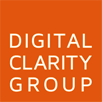Avoid Disaster with Better Agency Partner Selection
 Choosing a software implementation partner was once a relatively straightforward undertaking. In fact, most customers simply took the partner recommended by the software vendor. But as customers evolve from product buyers to solution buyers, so does the process of selecting an agency partner. These days customers need more than a technical team that understands the technology in depth. Instead, today’s best agency partner will craft off-the-shelf software into unique business solutions.
Choosing a software implementation partner was once a relatively straightforward undertaking. In fact, most customers simply took the partner recommended by the software vendor. But as customers evolve from product buyers to solution buyers, so does the process of selecting an agency partner. These days customers need more than a technical team that understands the technology in depth. Instead, today’s best agency partner will craft off-the-shelf software into unique business solutions.
This shift is most pronounced in the digital-first world of Customer Experience Management. Customers that once wanted a Web Content Management system installed now need a rebranded, redesigned, multichannel, digital experience solution integrated with an existing, complex ecosystem of custom and third party applications such as product information management, customer relationship management, and marketing automation technology.
As a result, system integrators have begun adding strategy, design, and professional services to their list of capabilities. In theory, both the creative and technical ends of the partner spectrum are merging to offer the end-to-end solution support customers demand. However, in the Customer Experience arena Creative Agencies and Digital Agencies play a major role and often overshadow the work of traditional system integrators. They too provide technical capabilities, and many of Digital Clarity Group’s VOCalis participants have shared their experiences working with a mix of agency types.
The following scenarios are common in our research on project success factors:
- We hired a Creative Agency – their technical skills are very limited indeed.
- We hired a Digital Agency – their technical skills are limited to just a few products.
Creative Agencies have extremely limited technical chops
In the case of creative agencies, it really shouldn’t be too surprising that they have very limited technical skills because advertising, branding, and design are their core competencies. However, as marketing and customer experiences become ever more digitized, these firms find that they must understand the technical challenges their work may create for a customer.
To be successful, the creative agency must be able to liaise closely with the digital team that has been tasked with building out the experience. That said, our research has also revealed that a healthy, collaborative relationship between creative and digital can often be elusive. As a result, great design effort is expended only for it to be deemed impractical or out of scope when it comes time for the build out.
Digital Agencies are often platform-specific
As for digital agencies, they are increasingly claiming to be one-stop creative and technical shops. To their credit, they have bolstered their technical capabilities over the past few years, in many cases by acquiring system integrator firms. But while these firms may have deep technical skills, they tend to be limited to a handful of specific products. So, where digital agencies can tend to run into challenges is in the integration of these same products into a customer’s existing technical ecosystem. Many customers already have various data management and business applications platforms that they need the customer experience management product to integrate with. The more complex these existing technical environments are, the less likely that digital agencies (alone) will be the most successful option.
Understanding the landscape is key, outside experts can help.
Many buyers are unaware of the fundamental differences between different types of agencies and consultancies. It’s only once they are engaged with a partner that they understand the limitations of the firm they have hired. Recently, I spoke to a major industrial firm that had problems with both the digital agency and the creative agency they had hired to overhaul a tired web presence. The project is hugely over budget and the original timeline is completely blown – yet the customer magnanimously blamed themselves as much as the partners. There was never any doubt that the partners they hired were working hard and doing the best they could. But neither agency truly had the skills necessary to support the client through a project that evolved into a complex transformational initiative.
So, to end with some pretty obvious advice, choose your partners wisely. None are out there with the intention of ripping you off, and most work hard to deliver quality work. But a firm that does not have the right skills for your specific needs is always going to struggle. And since it’s a rare firm that turns down work, so you need to determine your needs early and identify a list of possible partners with capabilities that align with those needs. Then, you must vet each agency’s detailed approach to the project, and get a clear understanding of how they’ve completed similar work in the past. Pay particular attention to any content or data integration or migration work that may become part of the project. These are two areas where the scale of the overall effort is typically underestimated and has been the death of many otherwise healthy projects.
Similarly, as a customer you need to recognize your own skills and as well as your limitations, no firm can be good at everything. The real skill is in knowing where you are strong and where you are weak, bringing in outside help as trusted partners to fill those gaps.
If you think you need help finding the right partners for your next initiative, please contact us.








